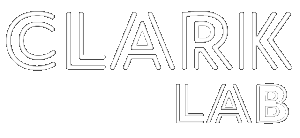
In our lab, we study reproductive cells called germ cells. This cell lineage is primarily responsible for differentiating into eggs or sperm (gametes) in the adult ovary or testis. A person without germ cells will receive a diagnosis of infertility and will be unable to have a baby without medical intervention and the use of donor eggs or sperm. Therefore, understanding the cell and molecular basis of germ cell formation can help provide answers to individuals or couples who receive a diagnosis of infertility, and help them make informed choices as to the next steps in their family building journey.
The Clark laboratory publishes extensively on the cell and molecular basis of human reproduction with a focus on characterizing the key stages of germ cell formation leading to healthy gametes. To achieve this, we use various genomic technologies including at analysis of thousands of cells at a single cell level using next generation sequencing, laboratory animal modeling and pluripotent stem cells.
In our pluripotent stem cell work, we use human embryonic stem cells and human induced pluripotent stem cells consented specifically for fertility and infertility research. The pluripotent stem cell cell lines routinely used in our lab have been generated by our group over the last fifteen years using state of the art derivation and reprogramming procedures. Using these pluripotent stem cell lines, we routinely differentiate the stem cells into germ cells and use gene editing approaches to model the role of genes and pathways in human germ cell formation towards understanding causes of infertility. Using human stem cells is important because other species do not recapitulate all the cell and molecular events involved in human germ cell development.


